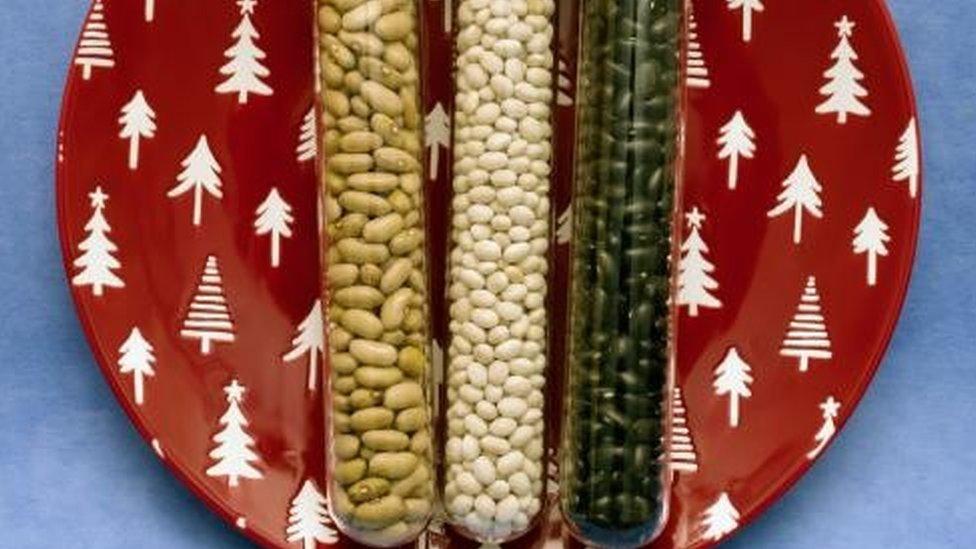University of Warwick's beans set for public sale in new year
- Published

The Godiva, Capulet and Olivia beans were developed at the University of Warwick
Beans developed by scientists to be grown in Britain and named after historical and literary figures will go on sale in the new year.
They include one which was canned as the first ever commercial crop of British-grown baked beans.
The varieties of common beans were bred by experts at the University of Warwick as alternatives to ones imported from overseas.
They could help develop new cooking traditions, Prof Eric Holub said,
"We need more diversity of plant fibre to improve our diets," he added.
"These new common bean varieties are exciting because they will help nurture new cooking traditions, starting across the Midlands, with a touch of local history and supporting sustainable agriculture using British seed, soil and sunshine".
A dry mix of the Godiva and Capulet beans will have a trial sale in January in plastic-free Zero Store shops in Stratford-upon-Avon and Leamington Spa, the university side.
Godiva, a blonde-coloured kidney-sized bean, took its name from 11th Century Coventry noblewoman Lady Godiva.
Olivia, a dry, black bean, was named after a Shakespeare's character in Twelfth Night.
The third, Capulet, was inspired by the Capulet family from The Bard's Romeo and Juliet and the university claimed it was possibly one of the most famous beans in the UK.
The variety was canned in Lincolnshire for the first time in a baked-bean style in November and it was hoped the breakthrough would reduce the country's reliance on imports.
Prof Eric Holub, pictured with Warwick Crop Centre research fellow Dr Rosanne Maguire, said the new beans could lead to new British cooking traditions
The owner of Zero Store, Charlie Demetriou, said he was very keen to be a part of the scheme.
"It's been a tricky 18 months for small retailers," he said.
"We are delighted to be part of such an exciting project whilst appreciating the years of work that have gone into it."
Seeds of Godiva and Olivia were also harvested at the university's crop centre in Wellesbourne in September and scientists said they would be able to be used by British farmers in summer.
Follow BBC West Midlands on Facebook, external, X, external and Instagram, external. Send your story ideas to: newsonline.westmidlands@bbc.co.uk, external
Related topics
- Published29 November 2023
- Published8 September 2023